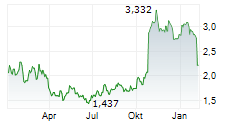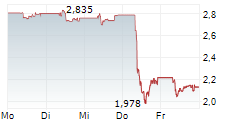Volvo Cars is adjusting the financial assumptions for the EX90 and ES90 platform, due to previous launch delays and new import tariffs in several markets.
The Volvo EX90 will have a reduced lifecycle profitability, despite a major upgrade of software quality and a planned volume ramp-up. This is due to significant launch delays in the past and subsequent additional development costs.
Meanwhile, due to import tariffs the company is currently unable to sell the Volvo ES90 profitably in the United States, while ES90 margins are also under pressure in Europe for the same reason.
In light of the above, Volvo Cars today announces that it will record a one-off non-cash impairment charge of SEK 11.4 billion in the second quarter of 2025.
Volvo Cars continues to invest in its next-generation dedicated electric car architecture and software capabilities. These will underpin several upcoming high-volume programmes, including the all-electric Volvo EX60 which is on track and will be launched and start production in 2026.
"Given market developments such as import tariffs in the US, development and launch delays for the EX90 and strategic investment prioritisations, we have reassessed volume assumptions for these two cars. This has resulted in a lower than planned lifecycle profitability" said Fredrik Hansson, CFO at Volvo Cars.
The charge primarily reflects adjustments in expected volumes and planned lifecycle profitability associated with the platform for the EX90 and ES90 cars, rightsizing the assets to the known market realities. SEK 4.0 billion of the charge is estimated to impact cost of sales and the majority of the remaining amount affects the R&D line in the financial reporting.
The effect on group net income will be SEK 9.0 billion and will be reported in Volvo Cars Q2 results, scheduled to be disclosed on 17 July 2025.
"The development of the EX90 and ES90 has laid a critical technological foundation for our future, with the Volvo Cars Superset tech stack" Fredrik Hansson continues. "The learnings and core systems we developed, including core computing and electric drivelines, will be used in next-generation platforms. These innovations are key to realising our long-term electrification and software-defined vehicle strategy, putting Volvo Cars at the technological forefront of the auto industry."
The upcoming EX60, built on the company's next generation architecture, will deliver significant cost reductions and performance improvements. This is thanks to, among other things, the introduction of mega-casting of car parts, cell-to-body technology that integrates batteries in the car body and the next generation of in-house developed e-motors.
Volvo Cars reaffirms its determination to become a fully electric car maker, positioning the company for improved scalability, profitability, cost efficiency and customer value across upcoming car programmes.
This disclosure contains information that Volvo Car AB (publ) is obliged to make public pursuant to the EU Market Abuse Regulation (EU nr 596/2014). The information was submitted for publication, through the agency of the contact person, on 14-07-2025 16:58 CET.
For further information please contact:
Volvo Cars Media Relations
+46 31-59 65 25
media@volvocars.com
Volvo Cars Investor Relations
+46 31-793 94 00
investors@volvocars.com
-------------------------------
Volvo Cars in 2024
For the full year 2024, Volvo Car Group recorded a record-breaking core operating profit of SEK 27 billion. Revenue in 2024 amounted to an all-time high of SEK 400.2 billion, while global sales reached a record 763,389 cars.
About Volvo Car Group
Volvo Cars was founded in 1927. Today, it is one of the most well-known and respected car brands in the world with sales to customers in more than 100 countries. Volvo Cars is listed on the Nasdaq Stockholm exchange, where it is traded under the ticker "VOLCAR B".
"For life. To give people the freedom to move in a personal, sustainable and safe way." This purpose is reflected in Volvo Cars' ambition to become a fully electric car maker and in its commitment to an ongoing reduction of its carbon footprint, with the ambition to achieve net-zero greenhouse gas emissions by 2040.
As of December 2024, Volvo Cars employed approximately 42,600 full-time employees. Volvo Cars' head office, product development, marketing and administration functions are mainly located in Gothenburg, Sweden. Volvo Cars' production plants are located in Gothenburg, Ghent (Belgium), South Carolina (US), Chengdu, Daqing and Taizhou (China). The company also has R&D and design centres in Gothenburg and Shanghai (China).


